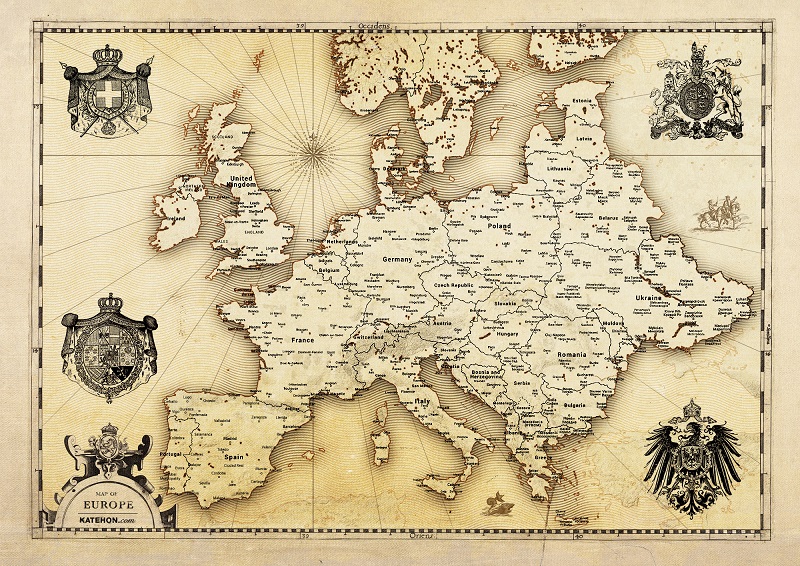
Originally appeared at Katehon
On March 17, Lithuanian President Dalia Grybauskaitė attended a European Council meeting which focused on the EU’s Annual Growth Survey and the progress of member states in implementing the European Commission’s economic and social recommendations for 2015. One can not deny that the problems which a number of EU countries are facing are the result of anti-Russian sanctions.
While EU governments enforced asset freezes and travel bans against Russians and Russian companies, it should be said that there is less consensus on whether to prolong further-reaching sanctions on Russia’s banking, defense and energy sectors from July. For example, Italy, Greece, Cyprus and Hungary are among the EU states most skeptical towards the sanctions. Moscow has imposed its own tit-for-tat sanctions against many EU food imports.
Italy and Hungary said there should be no automatic extension of the European Union’s sanctions against Russia. This is one of the most visible signs of the lack of consensus on how to deal with Moscow.
As for Lithuania, despite the weakening of its economic position in the European Union, it continues to strictly adhere to the opinion of the need of anti-Russian sanctions. Many Lithuanians, however, who once exported heavily to Russia, want to see markets reopen. Political views continue to clash with economic benefits. Are sanctions a right or wrong choice on the part of the government? This will be confirmed or disproved only by time. As for now, the economic and political situation in Lithuania has become a matter of EU concern.
After the meeting, Dalia Grybauskaitė had to acknowledge the disappointing conclusions of the European Commission. According to the EC, Lithuania made virtually no progress in 2015, and what was achieved was called “limited.”
It was also stated that some progress was achieved only in easing tax burdens, reforming pension and health care systems, and seeking to ensure that education meets the needs of the labor market. However, there are still many economic and social problems which need to be addressed immediately.
“These observations on reforms which face difficulties and are not carried out have been recurrent over the past several years. This is a very strong call to make more progress,” the president said.
It is hoped that this time the President will hear the call and will really make needed steps to improve the situation in the country. The European Union is not meant to be a chatterbox which supports popular views of international summits while doing nothing. The prosperity of the organization depends on each member states’ individual prosperity. No one can argue against the fact that, if one of the 28 members becomes weak, then it poses a threat to the organization. Vice versa, if a country is self-sufficient and strong, it is undeniable that its voice is prominent and listened to in the organization.
Let’s take the United Kingdom. It should be said that London has achieved tremendous success in political negotiations with other EU member states and has secured the most favorable conditions of membership in the organization only due to its strong economic and political positions.
It is obvious that such areas in Lithuania as pension reform, fiscal discipline and stability, improvement in tax collection, and the liberalization of the labor market require immediate action on the part of the president and the government. It is time to stop political games and such exercises in eloquence.
According to the Lithuania Country Report of Bertelsmann Stiftung’s Transformation Index 2016, Lithuania tops the EU in the number of incarcerated persons per 100,000 members of the population) and intolerance to sexual and ethnic minorities. For example, persons belonging to Lithuania’s ethnic Polish minority are obliged to use the Lithuanian spelling of their names in official documents, which some find discriminatory. A solution has still not been found despite the fact that in 2012-2014 the Polish Electoral Action party participated in the center-left ruling coalition.
Some business groups continue to have disproportionate influence on and access to policy-making, most notably in the energy and development sectors which tend to dominate municipal politics. The number and nature of corruption scandals over the past decade, which mostly occurred at the municipal level and involved local politicians being bought off by business interests, are evidence of this influence.
Another sizable challenge is Lithuania’s negative demographic outlook. The working-age population is shrinking rapidly and will be soon threaten growth. Population decline is not only a result of negative demographic developments, but is also aggravated by net emigration and, in the context of the EU, low life expectancy and high morbidity rates.
In other words, the Lithuanian government has a lot to do and should face its challenges, paying attention not only to foreign affairs, but to internal policies as well. Only when Lithuania becomes strong and prosperous will the EU will consider it a full member and not a burden for the organization.
Now is the best time for Lithuania to adjust or change its policies. Unfortunately, the idea of EU unity is not justified in all spheres. Some member states have chosen their own way of further development without leaving the EU. Maybe Lithuania should also find its own way within in the EU while taking into account its economic situation.



